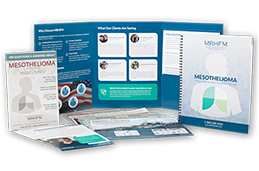How the FACT Act Will Affect Mesothelioma Victims
A new version of an Act that threatens the privacy and legal rights of mesothelioma victims has been approved by the House Judiciary Committee by vote of 19 to 11. If the Act becomes law, it will require the public disclosure by trusts under section 524(g), of quarterly reports that contain detailed information regarding the receipt and disposition of claims for injuries based on exposure to asbestos, and for other purposes. This “detailed information” includes sensitive, personal information about mesothelioma victims such as their full name and birth year, the last four digits of their social security number, work and medical histories, and other personal details.
In 2016, identity thieves hit a record 15.4 million Americans, up 16 percent from 2015. This translates to a loss of more than $15 billion to consumers. In the past six years, identity thieves have stolen over $107 billion. The FACT Act will allow companies to place mesothelioma victims’ personal, sensitive information on a publicly accessible website that can be accessed by anyone with a computer. This will make it even easier for identity thieves to steal information that would allow them to open credit card accounts, bank accounts, and others in victims’ names.
Supporters of what is now known as the Furthering Asbestos Claims Transparency (FACT) Act of 2017, argue that this a necessary step to ensure that claimants do not commit fraud by claiming their injuries twice. Critics of the Act strongly disagree. They say the Act is just another way for supporters, such as the U.S. Chamber of Commerce and asbestos industry interests, to create more red tape for mesothelioma victims seeking compensation. Critics also say that the Act may even deter victims from filing a claim at all for fear that all of their personal information will be made public.
In a recent Huffington Post article, contributor Alex Formuzls wrote, “if the bill becomes law, it will allow corporations responsible for poisoning these victims to access their personal information with the click of a mouse, instead of using the established discovery process in litigation. By contrast, attorneys for victims would remain bound by the current rules.”
It’s worth noting that other versions of the bill have been presented and failed. The first was in 2012, the second was in 2013, and the third was in 2016. The FACT Act was sponsored by Rep. Blake Farenthold (R-Texas), who has sponsored previous versions of the bill. It was co-sponsored by Rep. Bob Goodlatte (R-Va.), Chairman of the Judiciary Committee, and Reps. Tom Marino (R-Pa.) and Pete Sessions (R-Texas).
A bill must be passed by both the House and Senate in identical form and then be signed by the President to become law. The FACT Act of 2017 was placed on the Union Calendar by the House of Representatives February 24, 2017. A vote by the full House of Representatives has not been scheduled. In the meantime, those who oppose the FACT Act have pledged to continue fighting the bill.
Sources
Anderson, G. Oscar. "Identity Theft: Who’s At Risk?" AARP Fraud Watch Network. AARP, Sept. 2014. Web. 10 Apr. 2017.
Farenthold, Blake. "H.R.906 - 115th Congress (2017-2018): Furthering Asbestos Claim Transparency (FACT) Act of 2017." Congress.gov. Library of Congress, United States Copyright Office, 24 Feb. 2017. Web. 10 Apr. 2017.
Formuzis, Alex. "House Will Vote on Bill That Would Expose Many Americans to Online ID Theft." The Huffington Post. TheHuffingtonPost.com, Inc., 05 Jan. 2017. Web. 10 Apr. 2017.
"Identity Theft And Cybercrime." Insurance Information Institute (III). Insurance Information Institute, Inc., 2017. Web. 10 Apr. 2017.



